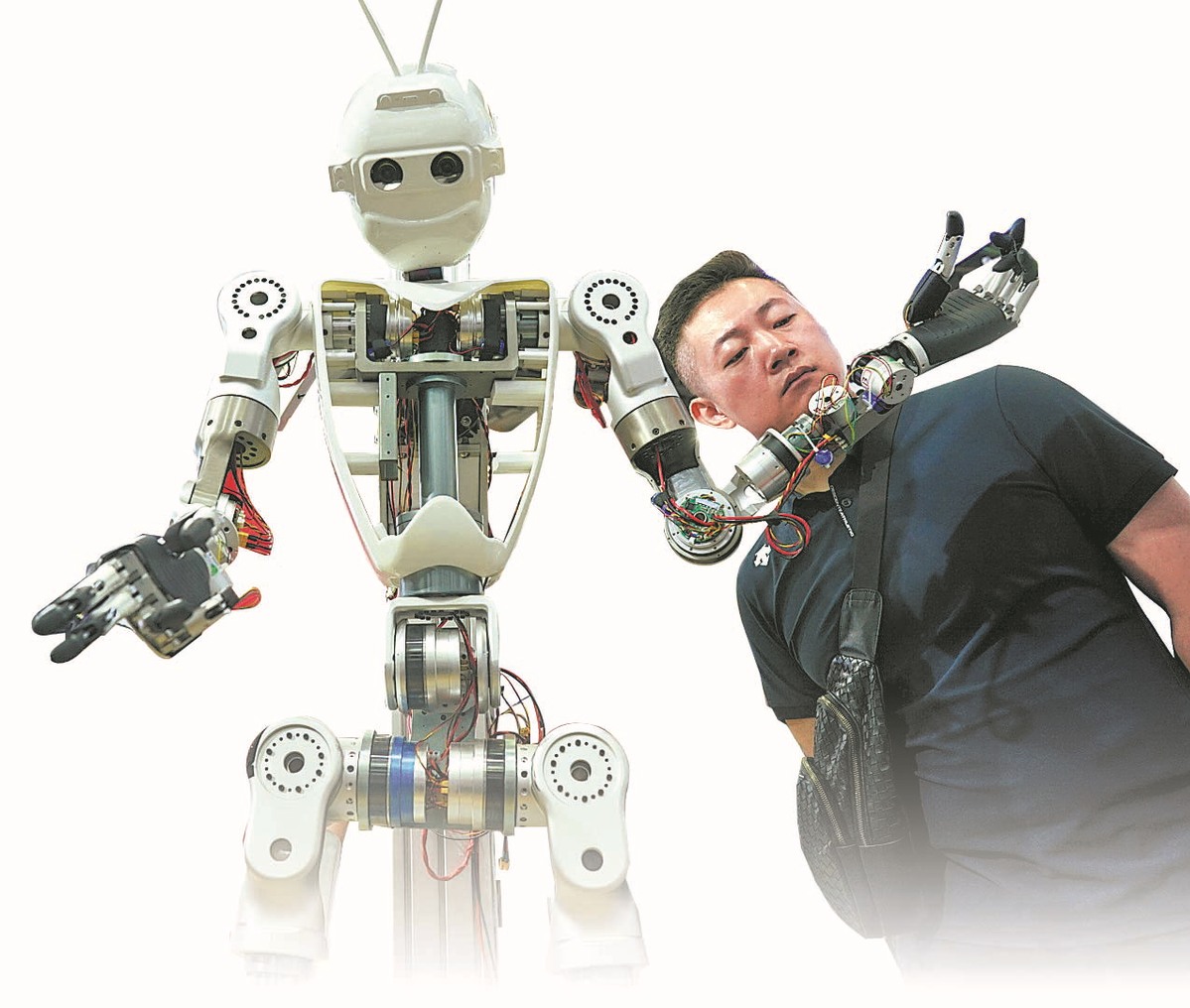Rise of the robots a lift for Shanghai


Industrial use of advanced technology is reaping great rewards for the city
From exoskeletons used in physical rehabilitation, to table tennis training partners and farm and services-industry labor, the lucrative robotics industry is reshaping work practices and production in China.
Shanghai has been at the forefront of the advances in research and development, and production of industrial robots for more than 40 years.
In a hot pot restaurant in the city's People's Square, 11 robots can now be seen helping staff members welcome guests and deliver dishes. The little robots not only offer diners a novel experience, but are saving the owners money on wages.
"The robots can usually deliver three layers of dishes at one time, but a human being can only bring one or two dishes," said Lan Jie, a team leader at the restaurant.
With more than 7,800 cafes and a need for 23,000 baristas, robots are also helping fill staffing shortages in Shanghai's coffee industry.
In Minhang district, a robot developed by Jaka Robotics can make as many as 500 cups of coffee a day and rival a barista in "latte art". It takes two trained baristas eight hours to make 500 cups of coffee, with each earning about 8,000 yuan ($1,108) a month.
"Businesses such as intelligent restaurants, unmanned cafes, and new retailers have the greatest applications for robots," Meng Xiaobo, vice-president of Jaka Robotics, told China Daily.
Li Tong, founder and CEO of Shanghai-based Keenon Robotics, believes robots are designed to replace humans doing repetitive, boring chores.
"Using machines to do work like this allows humans to spend more time on providing better services," Li said, adding that the only requirement for robots to work around the clock is recharging them.
In 2021, China's robot market in the catering sector more than doubled year-on-year to $84 million, with Keenon Robotics, Pudu Robotics, Suzhou Pangolin Robot and Beijing Orion Star Technology taking the lion's share, according to a report by US market research firm International Data Corp.
With a 48.6 percent market share, Keenon Robotics had the highest yearly growth rate of 153.4 percent, the report said.
"We believe the Chinese food-service robot sector has passed its infancy and is becoming a teenager," said Li, whose Shanghai-based company also offers its services and products in North America, Europe, the Middle East, Japan and South Korea.
For Fang Minglun, a tenured professor at Shanghai University, the rise of robots is a dream-made reality. The octogenarian is the driving force behind Shanghai developing its first batch of industrial robots in the 1980s. He has long believed that robots can benefit humans by serving people's all-around needs.
"Back in the 1980s, I wrote an article titled, 'Tools for production and assistants in life'. More than three decades have passed, and I think my vision is still effective," Fang said.
"I believe that the further development of robots must play a very important role in the advancement of human society. To be more specific, they will change our production modes and alter our lifestyles."


















